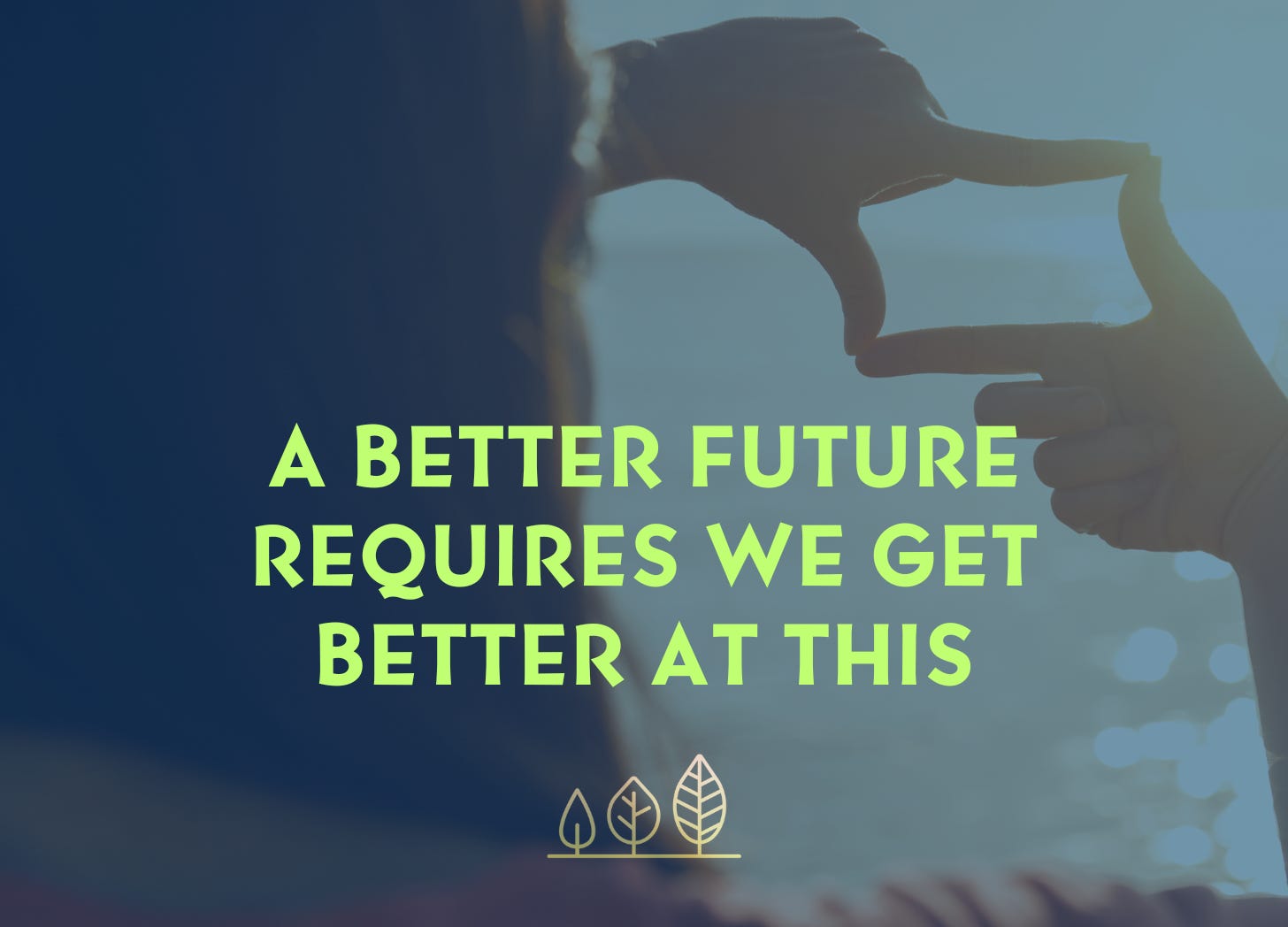A better future requires we get better at this
Want to set yourself apart? Learn to cultivate and leverage this powerful, yet under-rated leadership skill. Plus this week's leader links.
Difference must be not merely tolerated, but seen as a fund of necessary polarities between which our creativity can spark like a dialectic. Only then does the necessity for interdependency become unthreatening. Only within that interdependency of different strengths, acknowledged and equal, can the power to seek new ways of
being in the world generate…
Difference is that raw and powerful connection from which our personal power is forged.
~Audre Lorde
One of the greatest strengths a leader can possess is the ability to hold two competing ideas as true, at the same time.
Understanding nuance is an under-rated leadership skill.
Social media leaves little room for this, unfortunately. To get attention, we feel like we have to be polarizing and post in binaries.
Because it's easy to say: "Successful people do X; unsuccessful people do Y."
It gets attention and causes us to ask ourselves, "Which person am I?"
We then self-select the "better" option and hit like to validate that we're in one camp versus the other.
But that's not how people really work (or how life works for that matter).
We are complex, messy human beings having a wildly erratic experience here on planet earth.
There's nothing binary about it.
When we view life through an either/or lens, we not only miss out on the richness in the middle, but we send signals that there's a right way and a wrong way to experience our lives.
We all know that barring anything illegal or hurtful to others, that simply isn't true. And that we have agency to decide what works best for us.
That's the beauty of both/and thinking: we can hold that two things can be true at the same time, and that we don't have choose between them.
In the context of our leadership specifically:
➡️ We can be profitable AND reject hustle-culture
➡️ We can work hard AND put boundaries in place to protect our time
➡️ We can be frustrated with a behaviour AND still respect the person
➡️ We can be growth-oriented AND pursue that growth slowly and steadily
➡️ We can deliver honest feedback AND still be kind in our delivery
➡️ We can say no to an opportunity AND still be committed to our work
➡️ We can celebrate our work publicly AND still be focused on the team
➡️ We can be successful AND not be a morning person
➡️ We can have big, scary goals AND be terrified about pursuing them
As Whitman said, "We contain multitudes."
Let's remember that as we scroll, post and connect. There's enough room for us to all hold nuanced, complex and yes, sometimes competing ideas.
Ask yourself:
"What's the both/and option here?"
The good news is that there almost always is one.
Leader Links
A curated collection of links worth clicking.
— Both/And Thinking: Embracing Creative Tensions to Solve your Toughest Problems by Wendy K. SMith & Marianne W. Lewis (book)
— The Hidden Toll of Stress and How Small Stresses Snowball (HBR)
— I loved everything about this, and after reading, immediately went out and got her book, The Keeper (which is also excellent). On being your own why by
— As I find myself squarely in the sandwich generation, supporting a father in a long-term care home with dementia, this thoughtful post resonated deeply » Who could possibly do this alone? by
— How to Thrive in an Uncertain World (NYT gift link)
Join our Book Club!
We just started a new book, so there’s lots of time to jump in and read with us.
Over April, May and June, we’ll be reading The Perfectionist’s Guide to Losing Control by Katherine Morgan Schafler.
We started chapter one this week, and we discuss in a Substack chat thread on Saturday mornings (or at a time that works for you). No Zoom required!
If you’d like to join us, simply upgrade to a paid membership here and you’ll immediately have access to our chat area.









If we hold complex values it also adds dimensions to our personality. People like to categorize others in a monotonous, flat way which is understandable because there are many things to worry about, and one can't go by their day thinking about every person they met. But having complex ideals makes the person stand out forcing someone to think, putting that person in a higher spot in their social list.
Thanks so much for the shout-out, Stephanie! Since your Substack is about leadership, I thought I'd share this recent mention of The Keeper in an article about leadership and storytelling at Forbes: https://www.forbes.com/sites/estherchoy/2024/03/10/how-to-become-a-fearless-storyteller-and-leader/